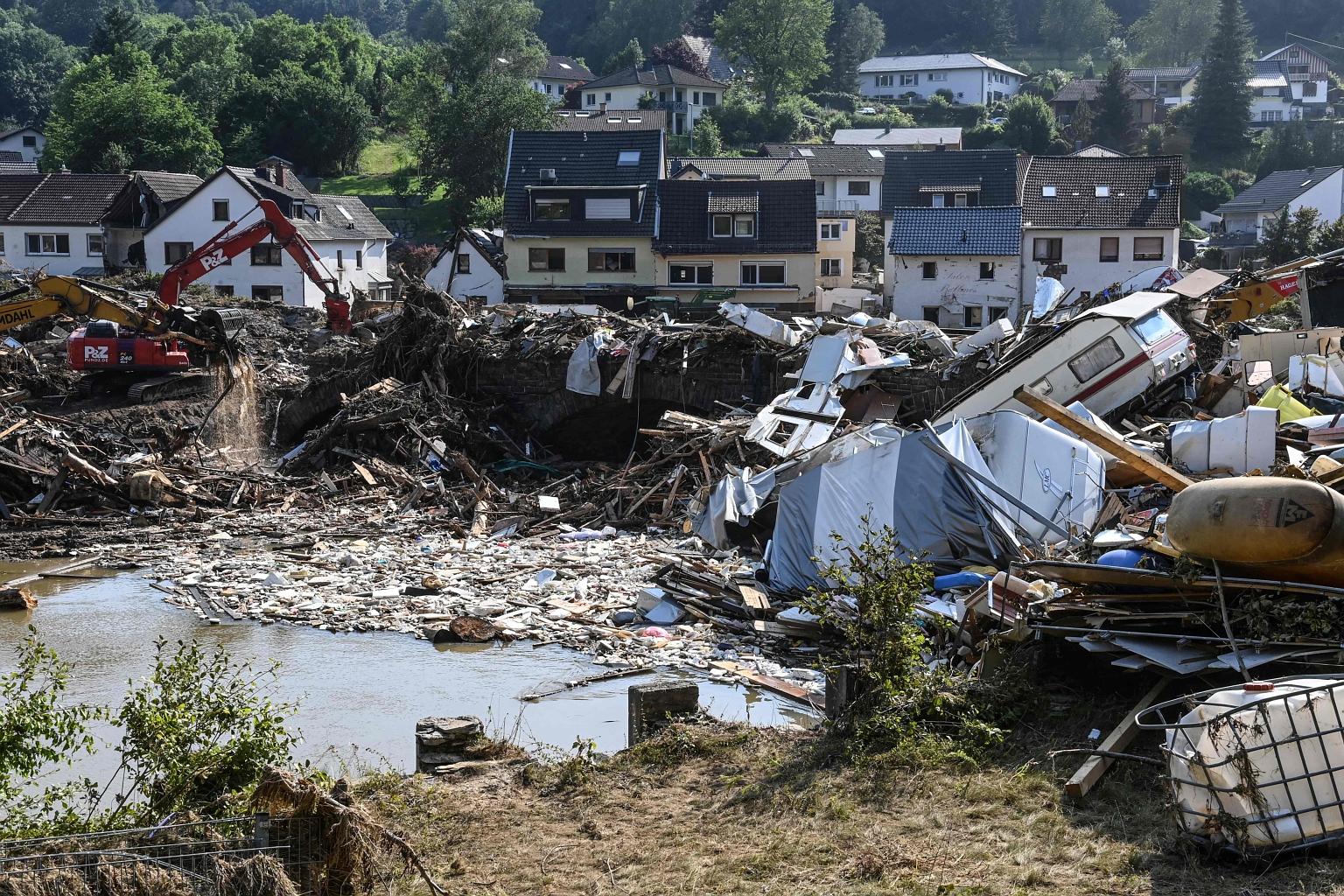After floods, Germany struggles to clear tonnes of trash
Sign up now: Get ST's newsletters delivered to your inbox

Demolished campers, trash and debris in Kreuzberg, Rhineland-Palatinate, western Germany, on Tuesday, after devastating floods hit the region.
PHOTO: AGENCE FRANCE-PRESSE
BAD NEUENAHR • Germany's most devastating floods in 60 years have created mountains of trash, from broken refrigerators to wrecked cars, piled up on roadsides and in makeshift dumps. Disposing of it could take weeks and local leaders have appealed for help.
Amid the stench and fear of disease, the country that pioneered modern waste management is struggling to cope with the tens of thousands of tonnes of wreckage strewn across the towns and villages of its western Rhinelands after the heaviest 24-hour deluge on record. The flooding claimed at least 180 lives, with 150 still missing.
Much of the trash has been heaped into piles so that streets are passable, or carted off to makeshift dumps.
For resident Hans-Peter Bleken in Bad Neuenahr, a wine-growing hub in Rhineland-Palatinate that was one of the towns worst hit, a clean-up operation led by the fire brigade and army has been a "brilliant help".
"The next big problem is going to be the huge piles of household rubbish," he told Reuters, saying the stench from rotting food waste was everywhere.
"We have beaten corona but if we now get the bacteria, the rats and more viruses, then that will be our problem."
Germany pioneered modern waste management in the 1970s, introducing the concept of separating rubbish to go for recycling, incineration or into landfill.
Yet the sheer amount of trash is far more than the waste management industry can cope with.
"The greatest challenge is the huge amounts of bulky waste," said Ms Anna Ephan, a spokesman for Remondis, the largest private waste management company in Germany.
In Germany's most populous state of North Rhine-Westphalia, Governor Armin Laschet told a news conference on Thursday: "It won't be possible to dispose of all the waste locally. We need wider help."
The cathedral city of Cologne - the state's largest - has issued an appeal on Facebook for help to clear "unimaginable quantities" of trash.
Most of the rubbish will have to be incinerated, but with municipal and commercial facilities running more or less flat out before the flood catastrophe, there is scant spare capacity.
"This is coming on top of all the rubbish that we already process - and it's unexpected," said Mr Bernhard Schodrowski of the BDE waste management industry association.
REUTERS, AGENCE FRANCE-PRESSE


